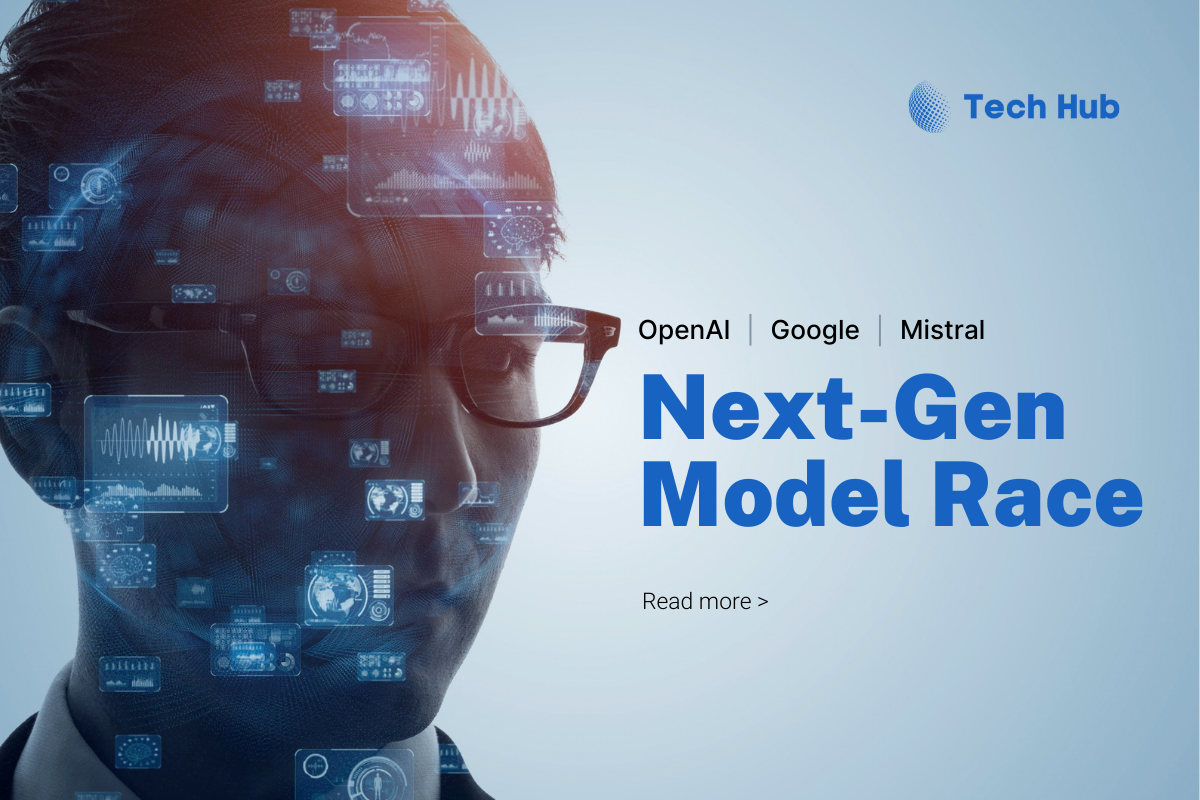The AI market is now becoming hub of innovation, since OpenAI, Google, and the French start-up Mistral all announced the latest versions of their AI models in a single twelve-hour period. This swarm of announcements coincides with the industry’s preparations for the anticipated rollout of GPT-4, the system that drives OpenAI’s ChatGPT chatbot, which has been a commercial success by all metrics.
market is now becoming hub of innovation, since OpenAI, Google, and the French start-up Mistral all announced the latest versions of their AI models in a single twelve-hour period. This swarm of announcements coincides with the industry’s preparations for the anticipated rollout of GPT-4, the system that drives OpenAI’s ChatGPT chatbot, which has been a commercial success by all metrics.
The AI race started with the acknowledgment of Nick Clegg, the president of global affairs at Meta, made during an event in London, where he confirmed that AI technology was going to be revealed. Clegg revealed that Meta intended to have the third edition of Llama published in a few weeks. This marked the beginning of a series of releases.
In a matter of seven hours after Clegg’s speech, the tech giant, Google, unveiled Gemini Pro 1.5 – the most advanced large language model – to the public. The rate plan is divided into the following two tiers; the free edition is restricted to 50 requests per day. Hot on the footsteps of the Google team with the recent launch, OpenAI brought out the final version of GPT-4 Turbo, its forward model.
The GPT-4 Turbo as well as Gemini Pro 1.5 are both “multimodal” systems enabling them to process inputs which are not just texts. These models can process data from image and audio and include additional video input.
Before the sunrise in France, the AI start-up Mistral, whose cofounders were former employees of Meta’s AI team, announced their frontier model, Mixtral 8x22B. In contrast to the American approach where AI systems are commonly published as 281GB files that are downloadable for free, Mistral released its AI system in an open-source manner, allowing people to access the file and make their own versions and improvements.
This approach has arisen discussions as there is a chance to use the same high-level systems independent of the developers’ intervention or detection of vulnerabilities and biases. Despite that, the advocates, including Meta, contend that in the end, having VR hardware made available for mass consumption, rather than just in a few large companies, will create greater value than confining such systems.
The initial release of Llama 3 by Meta is projected to be in smaller, less powerful versions, says the media, with the company’s most powerful last iteration later in the summer. Nevertheless, OpenAI is likely to challenge Meta in launching the next GPT project which is rumored to be the GPT-5, as confirmed by its chief operating officer, Brad Lightcap.
Amidst this flurry of activity, experts have raised questions about the potential limitations of the “large language model” approach shared by all these frontier AI systems. “We hear a lot of people saying: ‘Oh my God, we’re going to get [artificial general intelligence] within the next year,” said Meta’s chief AI scientist, Yann LeCun, responding to a claim from the xAI founder, Elon Musk. “It’s just not happening. We have AI systems that can pass the bar exam, but they can’t clear up your dinner table and fill up the dishwasher. We have systems that manipulate language, and fool us into thinking that they are smart, but cannot understand the world.”
In the quest to be the vanguard of the era of AI, the releases of OpenAI, Google, and Mistral, demonstrate clearly that the industry is on its critical phase. What remains clear is that the next couple of months will be full of novel developments and fierce competition within the AI space as these technology companies struggle for supremacy.
